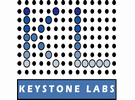In order to offer consumers a safe and healthy product in Canada, everything that comes out of a cannabis cultivation facility needs to be tested by federally licensed labs. However, just as has been happening for growers, who have to find their way through a jungle of regulations which narrow the type of actions that can be carried out, cannabis testing labs too have been struggling with keeping up with regulations. “For instance, to export cannabis products in the EU, testing requirements are particularly strict," Stephanie Ostrander with Keystone Labs explains. “As Canada moves forward with possible standardization of cannabis testing, this will assist with meeting the expectations of the EU market. The future goal is to create a monograph for cannabis.”
Cannabis monograph
A monograph is a summary of the scientific findings of a drug. Being a medicine, it would require a Drug Identification Number (DIN). “Such a number is gleaned from carrying out clinical trials,” Stephanie points out. “And in order to do this, it is necessary to do many tests and a lot of research. At this time, we don’t have it in Canada, nor do we expect to see one anytime soon. For a drug to acquire a DIN number, it has to been a single active molecule. The problem with cannabis moving forward to acquire a DIN number is there are more with one molecule.”
Testing methodology
According to Stephanie, there are still many things to be addressed in order to make the testing process efficient and profitable for labs and growers. “When you set up a lab to work with cannabis, you have a lot of work to do because Health Canada require validation reports for testing methodology,” Stephanie explains. “And each of these methods are proven with standards and the processes have the correct end result. However, there is no association that has outlined Lab proficiency, although the C45 Quality Association is looking at this task. As of now, there is not anything like that going on. Some labs are doing similar validations, which are a series of experiments to ensure that each test is repeatable. Health Canada is very busy so at this time there isn’t lab auditing for cannabis but we know this will happen.”
To trace back the source of such an issue, Stephanie goes back to 2015. “In 2015, the liberal party was elected also on the promise that they were going to legalize cannabis and to regulate the related industry. So, three years later they did it, but it was admittedly difficult to immediately come up with perfect regulations for such a complicated plant and product - this is still a nascent industry. For instance, they did not consider how long it would have taken for a good quality lab to be ready for such an undertaking.To set up a GMP pharma lab – which is a required certification for exporting a cannabis product for European sale - you are required to have pieces of equipment that are particularly expensive, not considering the set up and installation and licensing costs, and then the actual operational cost of running tests, documentation, and a specialized workforce.”
Looking ahead
The difference of cannabis products is that they are an agricultural good that is going to be tested under a pharma lens. “However, I think that labs will see vast improvements within the next three years,” Stephanie observes. “It is only a matter of time before an association that will work with lab proficiency will be formed. At that point, we will also see lab proficiency testing and benchmarks for these kinds of operations.”
For more information:
Keystone Labs
7225 Roper Road NW
Edmonton, AB, Canada
T6B 3J4
(587) 458-8411
key@keystonelabs.ca
keystonelabs.ca
